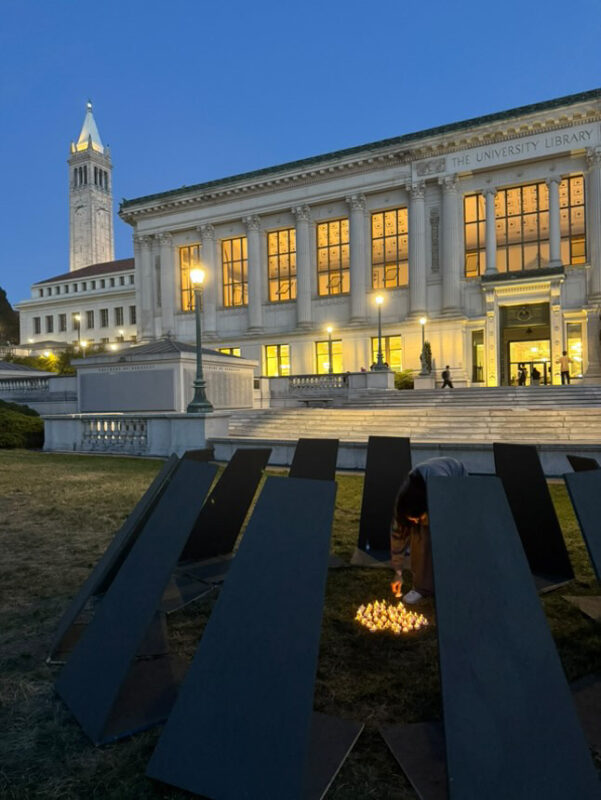BERKELEY, Calif. — On Thursday, April 24, University of California, Berkeley’s Human Rights Center was set to screen “My Sweet Land,” a documentary film that follows an 11-year-old Armenian boy navigating displacement during the Nagorno-Karabakh war between Armenia and Azerbaijan. The film was set to be screened at the Berkeley School of Law, on the evening of April 24, or Armenian Genocide Remembrance Day.
When Armenian students and faculty received a notice in the middle of the night on April 24 about the cancellation of the event, they were confused — and enraged.
“Free speech is really under threat in this campus,” Myrna Douzjian, an Armenian studies lecturer and the speaker at the screening, said. “I’m totally shocked.”
The event was canceled after the Azerbaijani Consulate of Los Angeles sent an email to co-sponsors of the film screening. In the email reviewed by this reporter, a member of the Consulate General of Azerbaijan urged that the co-sponsors “cancel the event or reconsider your institution’s association with this event.” It also wrote that the trailer of the film “emphasizes themes of conflict and violence, including the use of children to communicate these messages.” The Armenian Studies Program, despite being a co-sponsor of the screening, was left off the recipient list.
In Azerbaijani state media, celebration followed. Jeyhun Khalilov, a UC Berkeley law student from Azerbaijan, took to Facebook to celebrate the cancellation of the event. Khalilov wrote that he and two other Azerbaijani students at the law school visited the university’s law advising office and expressed concern about the use of “Artsakh” — the Armenian name for Nagorno-Karabakh — in the film.
For Armenian students, the cancellation was not just bureaucratic. It was personal. “It’s heartbreaking,” Sarine Nazarian, a third-year Urban Studies student, said. To Nazarian, the week is meant to bring the Armenian community on campus together. “It just feels a bit different, just because of all these hits that we keep on taking.”









